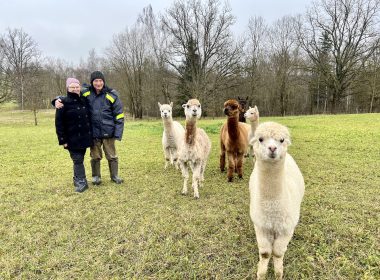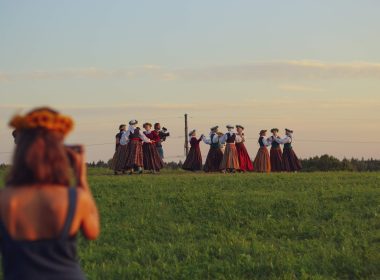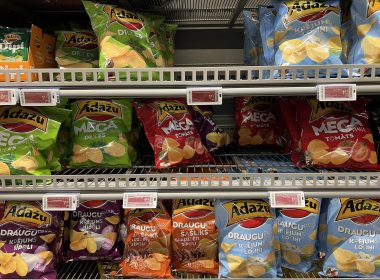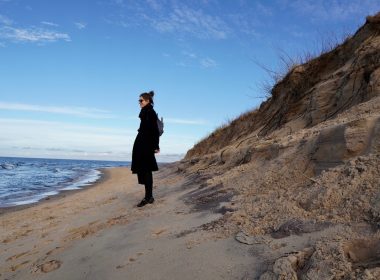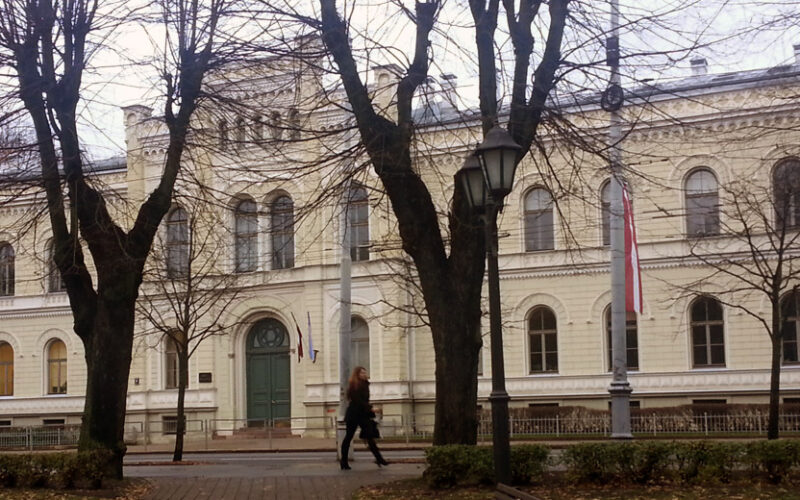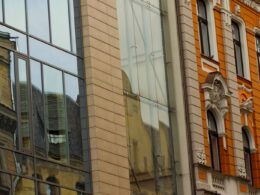If you’re moving to Riga with your kids in tow, you’ll want to know a bit about the local school scene before deciding on “the right one”. Schools in Riga are very different so you might not want to just settle for the one closest to your new home.
The first consideration should be whether the kids speak Latvian. If they don’t, you’re left with much fewer options. However, if they do speak Latvian or are at a good age to learn it very quickly, prepare for some tough decision making.
The Latvian school system in brief
The school year finishes at the end of May and recommences on September 1st. Kids also have autumn, Christmas and spring/Easter holidays.
Kids start school at the average age of 6-7.
Schools have catchment areas but if a class isn’t filled with students from the local area, spaces will be allocated to other interested parties.
To my knowledge, all schools in Latvia are co-ed.
Sākumskola – elementary school, years 1 – 6.
Pamatskola – middle school, years 7 – 9.
Vidusskola – high school, years 10 – 12.
Uniforms aren’t common in Latvia although more and more schools in Riga are choosing to adopt them. Sadly, rather than enforcing the idea that everyone is equal, in Riga the uniforms are actually considered more of a status symbol for those lucky kids who’ve managed to nab themselves a spot at one of “Riga’s prime schools”.
Mazākumtautību skolas or minority schools offer bilingual education, most often in Russian and Latvian, also in languages like Polish and Lithuanian. Most subjects are taught in Latvian.
School education in Latvia is free but parents or guardians are expected to cover the costs of stationery and some study materials, as well as extracurricular activities like school trips.
Students sit state exams at the end of years 6, 9 and 12.
Many schools require students to sit entrance exams for getting into years 7 and 10.
Students can choose not to pursue further education after year 9 (at the average age of 16)
A school has to achieve certain standards to be rewarded the “valsts ģimnāzija” or “state grammar school” status. These are widely considered good schools.
It’s not common for children to bring packed lunches to school. Children usually eat at the school canteen. Older kids might go to a cafe nearby.
Class sizes tend to be around 20 – 30 students. For some subjects students may be divided into study groups.
We interviewed American teacher Joe Horgan who has some additional insights on the differences between schools in Latvia and schools in the USA.
My kids don’t speak Latvian
Choose from:
- International School of Latvia
- International School of Riga
- International School Exupery
- King’s College Latvia
- Deutsche Schule Riga
- L’École Française Jules Verne de Riga
My kids speak Latvian
Do you want your child to pursue a general primary and/or secondary education or would you prefer if the education was focused on specific subject areas?
Everything is possible in Riga, with most neighbourhood schools focused on providing a free-for-all general education and many schools, particularly those in the central parts of town offering a more specialist education in areas as diverse as maths and art. Until year 10 most students will follow a similar curriculum but in the final three years of schooling they can choose different routes of study.
Popular programmes are maths and science, and language. Some may be focused more heavily on specific subjects like physics or history. There are also vocational schools at which students can learn practical skills like auto mechanics and cooking.
Due to the difference in study programmes and overall quality of education, some schools in Riga are particularly sought-after, so sought-after, in fact, that parents have been known to queue outside these schools overnight before enrolment day and even to bribe principals to enrol their child. No joke, you may hear stories of computers being bought and classroom renovations being funded by keen parents.
These schools include:
Rīgas Franču licejs (years 1 – 12)
One of the few schools at which you can learn French. Francais is taught from year 1.
Rīgas Valda Zālīša sākumskola (years 1 – 7)
For budding science and maths whizzes. Seen as a stepping stone to getting a place at Rīgas Valsts 1.ģimnāzija in the later years.
Rīgas Valsts 1. ģimnāzija (years 7 – 12)
Touted as THE best or one of the best schools in Latvia. Students can follow the International Baccalaureate programme from year 10.
Rīgas 49. vidusskola (years 1 – 12)
For budding science whizzes. It’s got a great reputation for chemistry teaching!
Rīgas Centra humanitārā vidusskola (years 1 – 12)
Best known for its excellent language teaching. English is taught from year 1.
Rīgas Valsts 2. ģimnāzija (years 7 – 12)
A school in the heart of Riga with a number of academic programmes to choose from.
Rīgas Hanzas vidusskola (years 1 – 12)
A school quite close to the centre of town with a number of academic programmes to choose from.
Āgenskalna Valsts ģimnāzija (years 7 – 12)
Another one for the logical thinkers, with a focus on maths and sciences.
I would encourage people to add to this list in the comments section below. You can also check out the annual Latvian school rankings for a better idea.
Riga also boasts a number of private schools. Note that these are all very small schools with much smaller class sizes. For information on these, contact Latvijas privātskolu asociācija (Latvian Private School Association).
If you’re interested in an alternative education for your child, there are a couple of schools in and around Riga which apply Waldorf methodology to their teaching. You can also consider sending your child on the school bus each day to the unique Jūrmalas Alternatīvā skola, a state-funded alternative school.
There are also schools in Riga which cater for children with special needs. Rīgas 1. speciālā internātpamatskola has a very good reputation. It’s located in the very heart of the city in a beautifully restored building.
—
Found this post useful? Continue with Joe’s insightful story of moving to Latvia and teaching at a local school!


